Cornwall and Devon given Historic England Everyday Heritage Grants
- Published
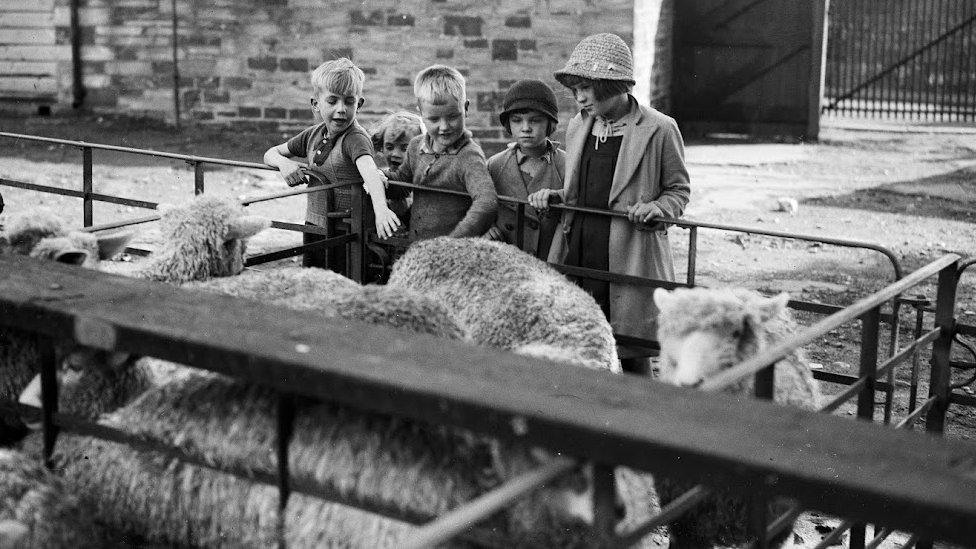
Cornwall's project will showcase previously unseen photographs of working-class life
Funding of £18,000 will be used to tell "untold" histories of working class lives in Cornwall and Devon.
Two community-led projects were announced by Historic England on Tuesday as part of 57 nationally.
In Braunton, Devon, £10,000 will be used to help set up a railway carriage to share stories of the arrival of the Southern Railway in 1874.
In Bodmin, Cornwall, an £8,000 grant means previously unseen photographs will showcase working village lives.
The two projects were chosen to benefit from Historic England's Everyday Heritage Grants: Celebrating Working Class Histories project.
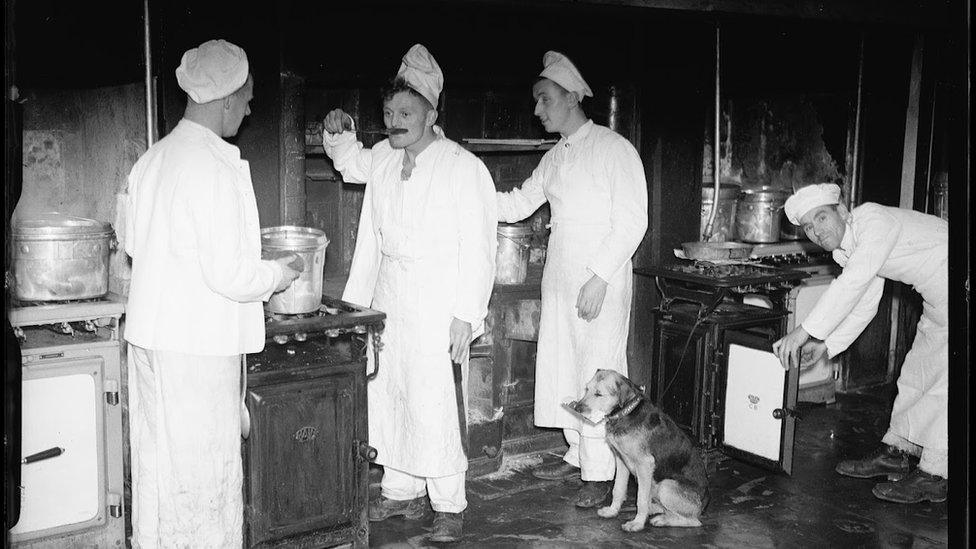
Troops training at the disused workhouse, Bodmin, on 16 Oct 1939
The Trains Gone By project will see Live Well Braunton and local mens' group Braunton Men in Sheds deliver the project from a "distinctive green Southern carriage" in a car park.
Dartmoor-based community theatre company MED Theatre will mentor volunteers to collect oral histories of those who worked, or still work, on Dartmoor, to produce an exhibition at the Museum of Dartmoor Life and a community play.
The A Cornish Camera - Bodmin at Work project will see Kresen Kernow and IntoBodmin deliver stories of the working class of the town using photographs from the George Ellis Collection.
Volunteers including young people and isolated older people will find, research, and animate the lives of working class people in the rural village of Godolphin.
Duncan Wilson, chief executive of Historic England, said: "The histories of castles and great houses and their inhabitants are well documented, but we know far less about our everyday heritage.
"From council estates, pubs and clubs, to farms, factories and shipyards, these are the places where most people have lived, worked and played for hundreds of years.
"We want to explore these untold stories and celebrate the people and places at the heart of our history," he said.

Follow BBC News South West on Twitter, external, Facebook, external and Instagram, external. Send your story ideas to spotlight@bbc.co.uk, external.
- Published19 July 2022
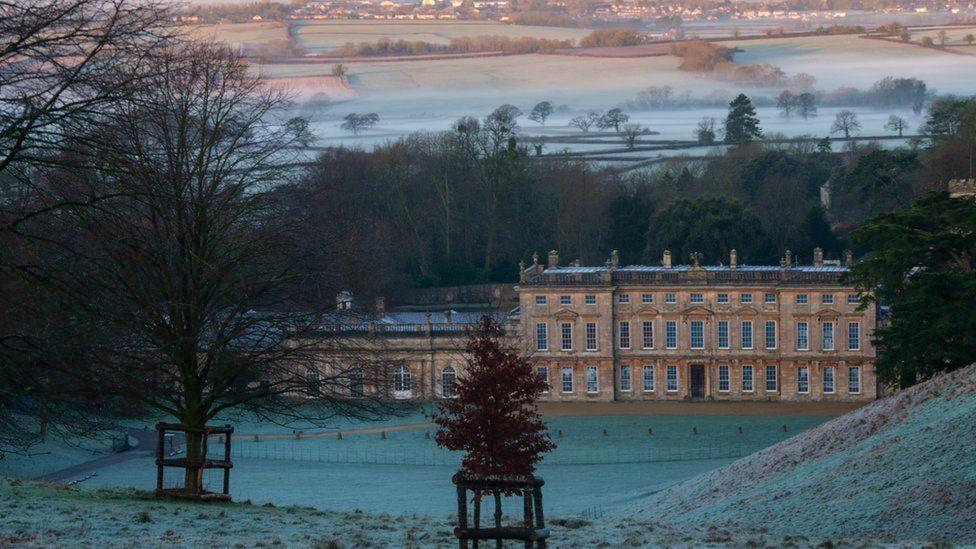
- Published16 July 2022
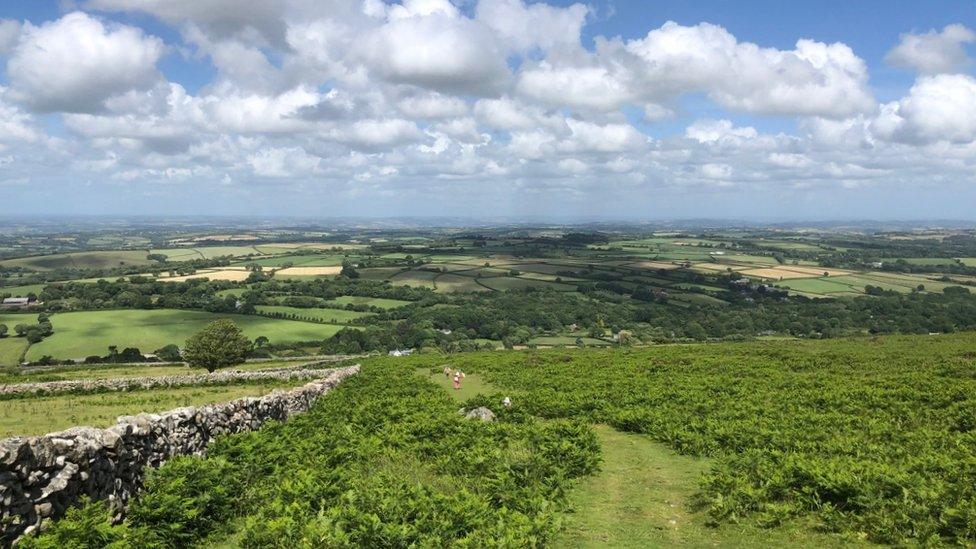
- Published5 July 2022
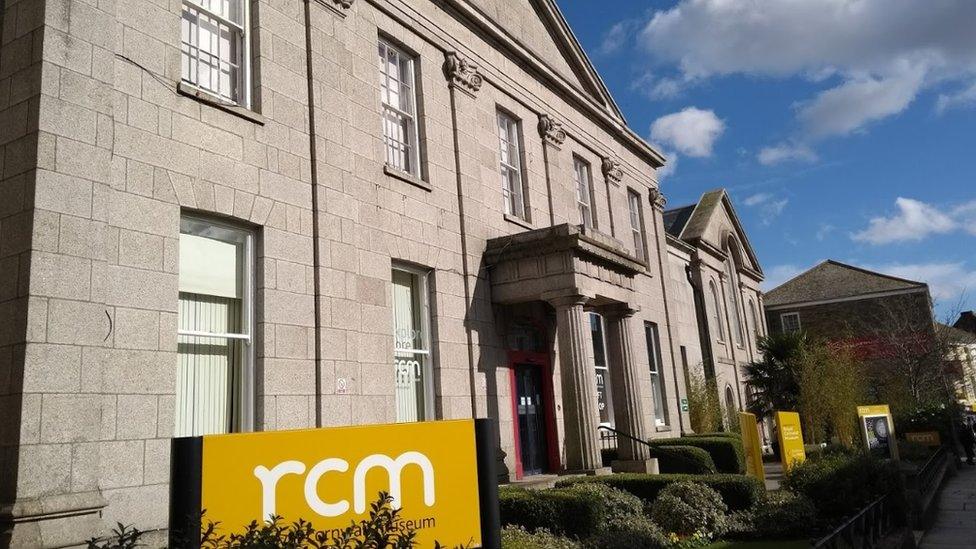
- Published12 May 2022
